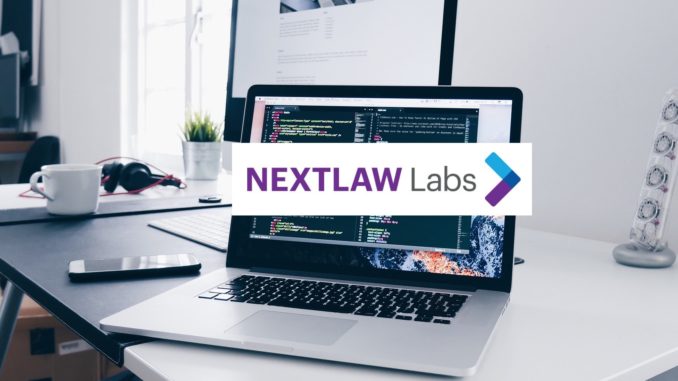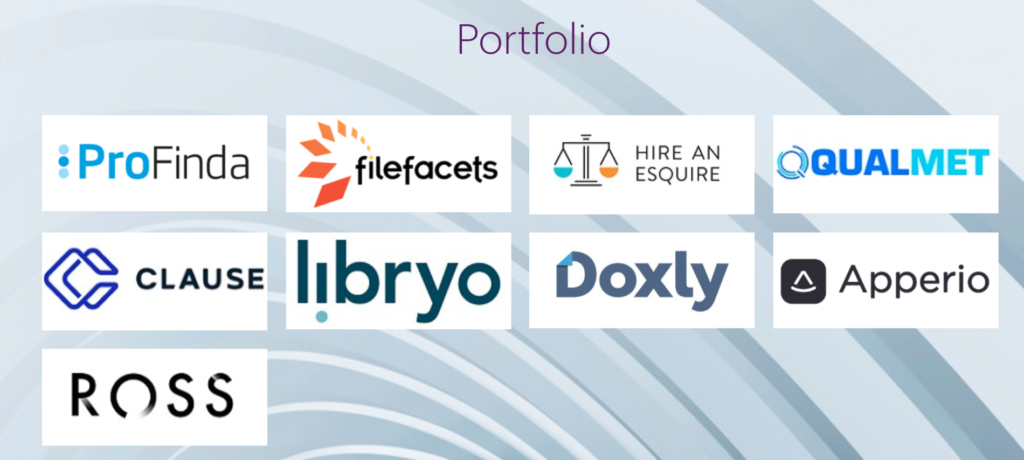
Nextlaw Labs first rose to fame back in 2015 when the ‘legal tech innovation catalyst’ operated by the world’s largest law firm, Dentons, was in the news on a regular basis for a series of investments in startups carried out via its sister VC group, Nextlaw Ventures.
For the last couple of years the Palo Alto-based Labs team has been less in the press in relation to its new startup investments, but it is still very active in terms of its core mission, which is to ‘curate, pilot, and adapt technology and processes, and to proactively predict client needs and address real-world business problems‘.
They’ve also developed Nextlaw In-House Solutions, a strategic advisory group helping legal departments leverage new processes and technology, to provide Dentons lawyers and clients with tech solutions that improve work quality and efficiency
Artificial Lawyer spoke to Dan Jansen, CEO of the Labs and Ventures groups, to find out what the twin organisations are up to now, especially with regard to the startups they invested in. Other key members of the Labs team include Maya Markovich, Chief Growth Officer, and John Fernandez, Global Chair Nextlaw Labs & Global Chief Innovation Officer at Dentons.
Jansen explained that the Ventures group has invested in around 10 legal tech companies since they launched back in 2015. Investments have been usually in the six-figure range.

The VC arm continues to invest in some of these, he added. But, Jansen noted they are not so focused now on investing in wholly new companies, at least for the moment.
Of those still in their portfolio, generally they ‘own a 5% to 15% stake in all of the portfolio companies, which is a none trivial amount’, he explained.
Some of these may eventually leave. For example, Doxly went on to be acquired by Litera in 2019.
‘When Litera bought Doxly they bought the entire company, so we sold our piece,’ said Jansen. ‘And we made a nice profit on the investment.’
But that’s not the end of the story. ‘As an NLL alumnus we continue to work with Doxly. The investment gave us a relationship.
‘We use [the software] in Dentons across the firm and we regularly hold calls with Haley every other week,’ he added, referring to Haley Altman, the dynamic founder of Doxly, and who is now Global Director of Business Development & Strategy at Litera following the M&A deal.
And Clause, the smart contract pioneer, what is happening with them now – a company that saw additional investment from DocuSign in 2019?
‘We love Clause and we continue to work with them,’ Jansen added, although it doesn’t look like Dentons is selling smart contract-based products yet to its clients, as some such as Clyde & Co and Baker Hostetler are.
And that’s not surprising. Despite making great strides, smart contracts for complex legal scenarios remain a very niche market. But, pioneering tech does have a habit of eventually going mainstream, talk to the supporters of electric vehicles. It just takes time.
Or, as Jansen commented, it’s still ‘early days for smart contracts’.

And what of legal research pioneer ROSS, (which is now caught up in a fractious legal spat with Thomson Reuters)?
‘ROSS were very early [when they launched back in 2014], but they have a very good team. Andrew Arruda is a dynamic leader.
‘They started with the notion that they would replace the large legal publishers and that was an ambitious goal.’
Jansen added that as far as he can see the company is still doing well. ‘We are not worried about them,’ he concluded.
And then there are companies that didn’t work out, such as Beagle, an early legal AI doc analysis system from Canada that ran into problems following issues with its sole founder – see analysis piece in AL.
But, hits and misses are all part of the investment world. In fact, you could argue that having made one really good sale, one unexpected snafu, and the rest all ticking over with varying degrees of success among them, is a decent track record for an investment group.
Bigger Picture
Moving beyond the individual companies, how does Jansen see the use of legal tech now, especially after the effervescent activity of the last few years?
His view is that legal tech needs to be more like every other stream of technology, i.e. user-friendly, intuitive, and not needing a complex user-training experience to get value from the applications. In short, legal tech should ‘just work’, the same as most tech that has managed to become successful on this planet.
‘Lawyers have a utilisation mindset and they want tech that fits into their busy workday. Are lawyers really going to train just to use a new product?
‘Legal tech applications need to be like an iPhone, you turn it on and it just works,’ he stated.
Of course, this is especially tricky for machine learning systems that need input from people with expert knowledge – and this remains for now a roadblock on the pathway to 100% intuitive doc analysis tools, even if some companies have put years of effort into creating pre-set NLP modules for very specific types of contracts.
But, NLP systems are not the only challenge here. Plenty of legal tech applications, some provided by very large companies, are far from intuitive, with some that require several days of specialist training to become useful. Some of the more fiddly doc automation systems are a classic example of non-intuitive design.
More broadly, as someone who has been at the sharp end of legal tech and legal market innovation for some years now, what does he think needs to change, or may change?
‘There are hundreds of legal tech companies around the world, and lawyers cannot work with all of those. There has to be some consolidation. There needs to be roll-ups to get more scale.’
And what about AI (i.e. NLP-driven text analysis) and automation in general?
‘Automation is going to drive change, but leadership is needed to shape it. When you bring [such tools] to the clients you can win pitches and deepen relationships,’ he concluded.
Conclusion
Overall, it’s fair to say that although Nextlaw Labs and Ventures are less active on new investments now than before, the core mission continues.
Part of this shift coincided with the departure in late 2018 of the former Labs CEO, Marie Bernard, who is now an independent tech consultant.
One therefore might be tempted to see the Labs/Ventures combo as a sort of bellwether that shows the legal tech investment surge begun in 2015 is over. But, that’s not really the case. As recent data has shown, there is still plenty of activity from VC funds and other investors, albeit more focused on highly scaleable legal tech companies, rather than early stage startups.
So, where Nextlaw Labs is putting most of its energy now simply reflects its maturity and experience, and that is what probably best reflects what is happening across the market as a whole.
Whatever happens next, Nexlaw Labs looks set to be with us for a long time to come.
2 Trackbacks / Pingbacks
Comments are closed.